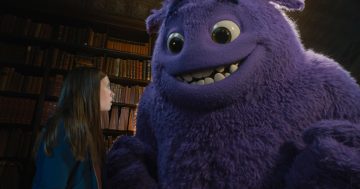Reviewed by Rama Gaind.
By Lisa Brennan-Jobs, Atlantic Books, $29.99.
 Small Fry, a memoir written by the eldest daughter of Apple’s co-founder the late Steve Jobs, is an eye-opener. It is frank, smart and it captivates. Above all, it’s a touching story of a childhood spent between two ‘imperfect but extraordinary homes’.
Small Fry, a memoir written by the eldest daughter of Apple’s co-founder the late Steve Jobs, is an eye-opener. It is frank, smart and it captivates. Above all, it’s a touching story of a childhood spent between two ‘imperfect but extraordinary homes’.
When Lisa Brennan-Jobs was three years old, her parents – artist Chrisann Brennan and Steve Jobs – went to court over her father’s refusal to pay child support. Jobs denied paternity, and in a deposition declared he was sterile. After a DNA test showed they were in fact father and daughter, he agreed to pay her mother $500 a month.
The case was finalised on 8 December 1980, “with my father’s lawyers insistent to close, and my mother unaware of why the case that had dragged on for months was now being rushed to a conclusion. Four days later, Apple went public and overnight my father was worth more than $200 million”.
Lisa declares: “clearly I was not compelling enough for my father. For him, I was a blot on a spectacular ascent, as our story did not fit with the narrative of greatness and virtue he might have wanted for himself. My existence ruined his streak”.
Even though she was grateful for his attention, Steve was mostly absent until she was eight. He began dropping by her mother’s house in Palo Alto to take Lisa roller-skating, but she remained uncomfortable in his presence, fearful of irritating him or overstepping the mark.
Fragmentary, smart and insightful, this is an unforgettable guide through her parents captivating and incongruent worlds. There’s no exacting reproach or making excuses
for her father, who was arguably the greatest entrepreneurs of his era, an amazing visionary.
In his working life, he enjoyed immense power. At home, he exerted power by withholding things: money, affection, conversation. Lisa recounts years of abandonment and regulatory behaviour, but says that was “normal” for her father.
The book’s title comes from a term of endearment used by Steve for her: his nickname for her demonstrated he was capable of warmth when the mood took him.
She depicts herself as an outsider whose relationship with her dad was characterised by confusion and shame. The recurrent themes of rejection and exasperation are noticeable.
Small Fry is not about extracting sympathy or reprisal. Instead, Lisa tries to get to the bottom of a relationship hindered in ineptness.











